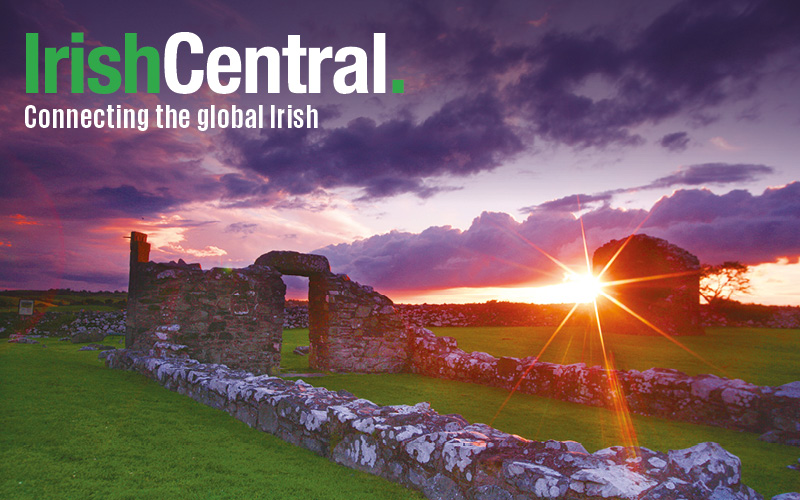"This is no way for authorities to deal with the legacy of the past."
What would you ask for if your loved one was murdered in a massacre fueled by sectarian hatred? Wouldn’t you want to know how it happened and receive some type of official acknowledgment of your loss? Wouldn’t you also want to secure justice for your loved one?
Most of us never experience such tragedy and, therefore, do not have to ask these questions. But for those who do, truth and accountability are essential prerequisites if they are to have any hope of gaining closure.
For the family members of those murdered in the Heights Pub in Loughinisland, Co Down on June 18, 1994, their journey to achieve truth and accountability has been long and difficult. Although they have overcome many obstacles, they still face powerful obstructions.
Ireland played Italy in a world cup soccer match in New Jersey on that evening. Ireland defeated Italy for the first time ever by a score of 1-0, anchored by a brilliant goal scored by Ray Houghton and Paul McGrath’s courageous defensive effort.
The Galway pub where I watched the match with my spouse and parents was aglow with the enthusiasm and excitement of Irish supporters. All of the pubs in Galway-town must have been the same. Throngs of people teemed onto the streets after the match, singing, dancing and honking car horns.
Read more: Chief suspects in Loughinisland massacre named for first time in new documentary

The Heights Bar in Loughinisland.
But 200 miles northeast, the atmosphere in the Heights Pub in Loughinisland was dark, somber and grim. During the match, masked UVF gunmen burst into the pub and opened fire with assault rifles. They killed six and wounded five.
Although British Secretary of State Patrick Mayhew vowed that “no stone” would be “left unturned” in uncovering all of the facts surrounding the attack, a thorough investigation was not conducted. In fact, the RUC’s shoddy effort had hallmarks of a cover-up and doomed the pursuit of justice. All these years later, family members are still waiting for arrests to be made.
In 2011, a Police Ombudsman Report found the police investigation of the murders had major defects. The report, however, did not find evidence of police collusion with the killers. In 2016, a new Police Ombudsman Report was issued by a different ombudsman. This report found “catastrophic” failings in the police investigation, including collusion.
The report said opportunities to gather evidence were not pursued. The report stated police informants were involved in the importation of weapons from South Africa used by loyalist paramilitaries, including an assault rifle used in the attack. These informants were protected by the police.
Significantly, the report said members of the RUC Special Branch protected the killers by not arresting suspects including a police informant, not following up on information about the getaway car and not investigating a South Down UVF gang involved in previous murders.
Read more: Press freedom takes a beating as two journalists are arrested in Northern Ireland
In short, the Police Ombudsman Report found the investigation was characterized “by incompetence, indifference and neglect.”
When the report was released, the Ombudsman said: “collusion was a significant feature of the Loughinisland murders.”
Due to the passage of time and unavailability of evidence, he did not recommend criminal charges. Nevertheless, the report vindicated family members who said from the beginning that the investigation was marred by a cover-up. They felt they finally had the truth and hoped to have those responsible held accountable.
Then came challenges to the Police Ombudsman Report. Two retired members of the RUC, one the Chairman of the Retired Police Officers Association, were permitted by the court to file an action seeking to quash the report and declare its findings “flawed and misconceived.”
The officers claimed the ombudsman lacked authority to reach the conclusions he did in the matter. A court agreed in part. It held the officers accused of collusion were denied due process because they were in effect convicted by the report without receiving notice.
Additionally, the ombudsman removed the report’s references highlighting “collusion” by a former police officer involved in “the destruction of exhibits and documents” related to the storage and disposal of the getaway car. But his finding that collusion was a “significant feature” of the murders was not removed, and the challenge to that aspect of the report continues in court.
Last year, a documentary film about the murders - “No Stone Unturned” - named three suspects in the attack, suggested the RUC knew about the UVF plan to kill beforehand and accused the RUC of warning suspects they were about to be interviewed. The film also blamed the RUC for destroying evidence. After the film’s release, family members called upon authorities to render justice by making arrests and seeking prosecutions. That did not happen.
Instead, last month, the filmmakers were arrested for theft of secret information from the Police Ombudsman’s Office. The human rights NGO, Committee on the Administration of Justice, rightfully criticized this action by citing a recent European Court of Human Rights decision upholding the “vital role” of journalists as “‘public watchdog(s)’ in imparting information on matters of public concern.”
It is possible that the effort is really aimed at the Police Ombudsman’s Office. Pressuring journalists to divulge sources is a tactic that has been used before.
The cover-up remains strong 24 years later. So does police impunity in this matter. Authorities are trying to change the narrative and shift the focus away from the truth.
It has been left to family members, who have been denied justice for their loved ones, to doggedly pursue those responsible for the murders so they can be held accountable. This is no way for authorities to deal with the legacy of the past.
This article was submitted to the IrishCentral contributors network by a member of the global Irish community. To become an IrishCentral contributor click here.




Comments